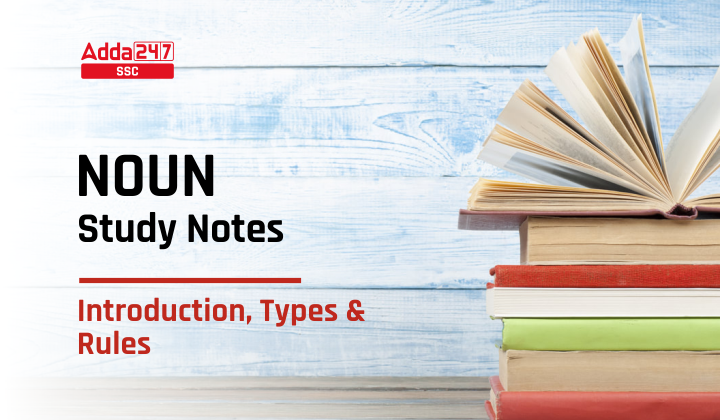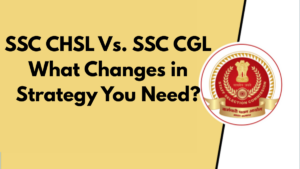Definition Of Noun
Nouns serve as naming words that identify people, places, animals, objects, and ideas. Within a sentence, they fulfill various roles, such as acting as the subject, direct object, indirect object, subject complement, object complement, appositive, or adjective. Additionally, nouns can function as adjectives and verbs.
Nouns are the foundation of sentence structure. They serve as subjects, objects, and complements, making them essential for constructing grammatically correct sentences. In this article, we will simplify and explore the essential rules, types, and various aspects of nouns, making it easier for everyone to grasp.
Noun Examples:
- People – Rohit, Shally, Man, Person, Jhony, Women, Girl, The President
- Places – Mumbai, India, Italy, South Pole, Brazil, The Ganga River, Classroom, Washroom, Basketball Court, Football Ground, Swimming Pool
- Animals/Birds/Aquatic Animals/Reptiles – Tiger, Deer, Lizard, Ostrich, Flamingo, Bear, Dogt, Fish, Dolphin
- Ideas – Invention, Evolution, Extinction, Discussion, Conclusion, Argument, Destruction
- Objects/Things – Ball, Car, Bedsheet, Stone, Bag, Laptop, Desk
Types of Noun
1. Proper Noun:
- A proper noun refers to the specific name of a particular person, place, or entity.
- It is always capitalized.
- Examples include individuals like John, cities like Paris, and unique entities such as The Eiffel Tower.
2. Common Noun:
- A common noun is a general name given to every person, place, or thing of the same kind or class.
- It does not refer to any specific individual.
- Examples encompass everyday items like table, chair, and concepts like honesty, and kindness.
3. Collective Noun:
- Collective nouns denote a group or collection of persons, animals, or things.
- They represent a singular entity but consist of multiple components.
- Examples include team, flock, committee, and audience.
4. Abstract Noun:
- Abstract nouns represent ideas, qualities, or states that are intangible and not physical objects.
- They express concepts, emotions, or conditions.
- Examples encompass love, happiness, freedom, and justice.
5. Material Noun:
- Material nouns denote substances or physical matter from which things are made.
- They can include raw materials or substances used in manufacturing.
- Examples comprise steel, wood, water, and gold.
Rules And Examples Of Noun
1. Some nouns always take a singular verb.
Scenery, advice, information, machinery, stationery, furniture, abuse, fuel, rice, gram, issue, bedding, repair, news, mischief, poetry, business, economics, physics, mathematics, classic, ethics, athletics, innings, gallows.
- The scenery of Kashmir are enchanting. (Correct use- is)
- He has given advices. (Correct use- advice)
2. Some nouns are singular in meaning, but they are used as plural nouns and always take a plural verb.
Cattle, gentry, vermin, peasantry, artillery, people, clergy, company, police.
- The cattle is grazing in the ground. (correct use- are)
- Police has controlled the situation. ( correct use- have)
3. Some nouns are always used in a plural form and always take a plural verb.
Trousers, scissors, spectacles, stockings, shorts, measles, goods, alms, premises, thanks, tidings, annals, chattels, etc.
- Where is my trousers? (correct use- are)
- Spectacles is a costly item. (correct use- are)
4. There are some nouns that indicate length, measure, money, weight or number. When they are preceded by a numeral, they remain unchanged in form.
Foot, meter, pair, score, dozen, head, year, hundred, thousand, million.
- It is a five years degree course. (correct use- year)
- I have seven dozens of shoes. (correct use- dozen)
5. Collective nouns such as jury, public, team, committee, government, audience, orchestra, company, etc. are used both as singular and Plural. It depends on the usage.
- The jury was divided in their opinion. (correct use- were)
- The team have not arrived yet. (correct use- has)
6. Some nouns have one meaning in the singular and another in the plural:
- Advice = counsel, advices = information
- Air = atmosphere, airs = proud
- Authority = command, authorities = persons in power
- Good = wise , goods = property
- Iron = metal, irons = fetters, chains
- Force = strength, forces = army
- Content = satisfaction, contents = things contained
- Respect = regards, respects = compliments
- Work = job, works = compositions, factories,.
7. People are often confused or they commit mistakes in the use of certain nouns.
- Lecturership is wrong: lectureship is correct.
- Freeship is wrong; free – studentship is correct.
- Boarding is wrong; boarding house is correct.
- Family members is wrong; members of the family is correct.
- English teacher is wrong; the teacher of English is correct.
- Cousin – brother or sister is wrong; only cousin is correct.
- Wages means punishments when used in the singular.
- It also means charges for the labour when used in the plural sense.
8. A pronoun must agree with its antecedent in person, number and gender.
For Example
- Every student must bring his luggage.
- All students must do their home work.
- Each of the boys must carry his own bag.
9. While using ‘everybody’ ‘everyone’, ‘anybody’, and ‘each’ the pronoun of the masculine or the feminine gender is used according to the context.
- I shall be happy to help each of the boys in this practice.
- But when the sex is not mentioned, we use the pronoun of the masculine gender.
- Anyone can qualify this exam if he tries.
- Each of the six boys in the class has finished their tasks. (Incorrect)
- Each of the six boys in the class has finished his task. (Correct)
10. The pronoun ‘one’ must be followed by ‘one’s’.
- One must finish his homework in time. (Incorrect)
- One must finish one’s homework in time. (Correct)
11. Enjoy, apply, resign, acquit, drive, exert, avail, pride, absent, etc., when used as transitive verbs, always take a reflexive pronoun after them. When ‘self’ is added to ‘my’, ‘your’, ‘him’, ‘her’, and ‘it’, and ‘selves’ to our and them – they are known as reflexive pronouns.
- He absented from the meeting. (Incorrect)
- He absented himself from the meeting. (Correct)
12. ‘Who’ denotes the subject and ‘whom’ is used for the object?
Who: It’s the subject of a verb—e.g., Who gave you that book?
It’s a predicate nominative (a noun in the predicate that renames or refers to the sentence’s subject)—e.g., This is who I am.
Whom is an objective pronoun, which is a pronoun that receives the action of a verb. It also has two main uses:
- It is the object of a verb—e.g., Whom should I call?
- It is the object of a preposition—e.g., From whom did you get this information?
13. When two or more singular nouns are connected by ‘either or’; ‘neither nor’, ; and ‘or’, the pronoun used is singular.
- Either Rohan or Sohan will give their bike. (Incorrect)
- Either Rohan or sohan will give his book. (Correct)
14. When a singular and a plural noun are joined by ‘or’, ‘nor’, the pronoun must be plural.
- Either the student or his teachers failed in his duty. (Incorrect)
- Either the student or his teachers failed in their duty. (Correct)
15. ‘Whose’ is used for living persons and ‘which’ for lifeless objects.
- Which novel did you select?
- Whose photograph is lying there?
16. ‘Each other’ is used when there are two subjects or objects and ‘one another’ when there are more than two.
- Ram and Sita loved each other.
- Those five students, who are sitting there, love one another.
17. When a pronoun stands for a collective noun, it must be in the singular number and in the neuter gender if the collective noun is viewed as a whole but if it gives an idea of different entities, plural pronoun is used.
Eg: The jury gave ‘its’ verdict.
Here the ‘jury’ gives the idea of one whole.
If the collective noun conveys the idea of separate individuals comprising the whole, the pronoun standing for it must be plural.
Eg: The jury were divided in their opinions.
in this sentence, the ‘jury’ gives the idea of several individuals.
18. If pronouns of different persons are to be used together in a sentence, the serial order of persons should be as follows;
Second person(2) + third (3)+ first person(1) in normal sentences. But when mistake or fault is expressed in the sentence, the order should be; first person(1) + second person(2) + third person(3). RULE-231
Eg: You, he and I have finished the work. (Normal idea)
I, you and he are to blame. (here Confession of guilt is expressed , it’s a negative idea, hence order is 123)
19. ‘Some’ is used in affirmative sentences to express quantity or degree. ‘Any’ is uses in negative or interrogative sentences.
- I shall buy some apples.
- I shall not buy any apples.
- Have you bought any apples?
But ‘some’ may be correctly used in interrogative sentences which are, in fact, requests.
- Will you please give me some water?
20. The use of ‘few’, ‘a few’’ and ‘the few’ should be used with care. They denote ‘number’.
‘Few’ means ‘not many’, ‘almost nothing’. A ‘few’ is positive and means ‘some at least’. ‘The few’ means ‘whatever there is’.
- A few men are free from fault. (Incorrect)
- Few men are free from fault. (Correct)
21. Use of ‘less’ and ‘fewer’
‘Less’ denotes quantity and ‘fewer’ denote number.
- No less than fifty students were selected. (Incorrect)
- No fewer than fifty students were selected. (Correct)
- There are no fewer than five liters of water in the bottle. (Incorrect)
- There are no less than five liters of water in the bottle. (Correct)
22. Use of little, a little, the little
- ‘Little’ means ‘hardly any’
- There is little hope of his recovery. (Incorrect)
- There is a little hope of his recovery. (correct)
2. ‘A little’ means ‘some’, though not much.
- Little knowledge is a dangerous thing. (Incorrect)
- A little knowledge is a dangerous thing. (Correct)
3. ‘The little means ‘not much but all there is’.
- Little water that is in the bottle may be used for the child. (Incorrect)
- The little water that is in the bottle may be used for the patient. (Correct)
23. Use of elder, older.
‘Older’ refers to persons as well as things and is followed by ‘than’.
- Rohan is elder than all other boys of this area. (Incorrect)
- Rohan is older than all other boys of this area. (Correct)
‘Elder’ is used for persons of same family.
- Sabu is my older brother. (Incorrect)
- Sabu is my elder brother. (Correct)
24. Normally ‘than’ is used in the comparative degree, but with words like superior, inferior, senior, junior, prior, anterior, posterior and prefer ‘to’ is used.
- Sara is junior than Neeta.( Incorrect)
- Sara is junior to Neeta. (Correct)
- I prefer reading than walking. (Incorrect)
- I prefer reading to walking. (Correct)
25. when a comparison is made by using a comparative followed by ‘than’, the word ‘other’ must exclude the thing compared form the class of things with which it is compared.
- He is better than any man. (Incorrect)
- He is better than any other man. (Correct)
‘Any man’ includes the man himself and thus the sentences will be awkward.
26. In some cases, the comparison is subtle and must be given proper attention.
- Ex- The climate of Delhi is better than Mumbai. (Incorrect)
Here the comparison should be between the climate of Delhi and the climate of Mumbai.
- The climate of Delhi is better than the climate of Mumbai. (Correct)
Or
The climate of Ranchi is better than that of Gaya. (Correct)
(Here, ‘That of’ means ‘the climate of’)
If the traits are in plural, it will be ‘those of’.
The products of Reliance are better than those of Suzuki.
- The scenery of Kashmir is better than Shimla. (Incorrect)
- The scenery of Kashmir is better than that of shimla. (Correct)
27. ‘Many a’ is always followed by the singular verb.
- Many a student were drowned in the river. (Incorrect)
- Many a student was drowned in the river. (Correct)
28. If the subject is ‘the number of’ the singular verb is used. And when the expression (‘a +number+of) is used , plural verb is used.
- The number of students are very small. (Incorrect)
- The number of students is very small. Correct
- A number of girls has passed in the examination. (Incorrect)
- A number of girls have passed the examination.( correct)
29. When ‘as well as’, ‘along with’, together with’, ‘no less than’, ‘in addition to’ and ‘not’ and ‘with’ join two subjects, the verb will be used according to the first subject.
- Ram, as well as his five friends, are going.( Incorrect)
- Ram, as well as his five friends, is going. (Correct)
- The teacher, along with the students, were dancing. ( Incorrect)
- The teacher, along with the students, was going. (Correct)




 How can I get selected for Delhi Police ...
How can I get selected for Delhi Police ...
 SSC CHSL Vs. SSC CGL – What Changes in S...
SSC CHSL Vs. SSC CGL – What Changes in S...
 Importance of Solving Previous Year Pape...
Importance of Solving Previous Year Pape...










